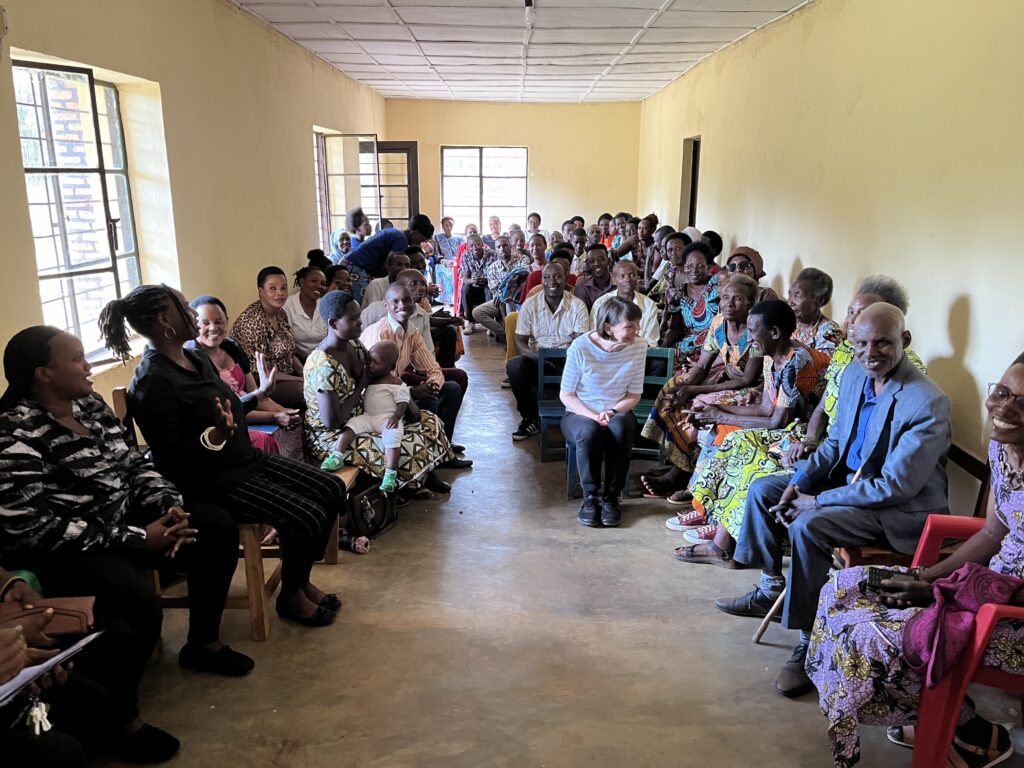Ask anyone who has lost someone they cherished: time does not necessarily heal. It might be more realistic to say that over the years, we are fortunate if we learn how to manage the pain of bereavement.
But when people witness a violent death, no one should expect deep psychological wounds to vanish. Survivors of the Holocaust may have been silent about their experiences for decades, yet they were tormented by nightmares and flashbacks for the rest of their days.
If the spirit of Winston Churchill attended the group counselling meetings in Rwanda, supported by Network for Africa, he might offer the same advice he gave to soldiers and war-time civilians:
If you’re going through hell, keep going.
Churchill, who was plagued by the black dog of depression all his life, put his finger on the first essential step that marks survivors from victims: just keep going, one day at a time, one foot in front of the other. But finding the strength to keep going is not always obvious, especially if you are still a child. For this reason, our individual and group counselling are needed even thirty-one years after the Rwandan genocide.
7th April – Tutsi Genocide Memorial Day
As we mark the anniversary of the Genocide against the Tutsi people, Network for Africa salutes our long-time partner, SURF, the Survivors Fund. Founded and run by Rwandans, SURF has been a constant, reliable presence in the lives of thousands of orphans and widows who survived the genocide of 1994.
From the start, SURF addressed the practical needs of survivors who were left homeless, penniless and alone. As a reporter at the time noted, everything had been destroyed in the conflict, even the typewriters in government offices. Only one fire truck remained to serve the entire nation. Many of the country’s medical professionals had been Tutsi, and only a handful were alive after one hundred days of slaughter.

When hope was in short supply, SURF offered shelter, food, medicine and support. When Network for Africa first encountered SURF, we were astonished that they could build a simple four-bedroom home for child-headed households on time and to budget for less than $6,000. They gave grants enabling orphans to continue their education, and they helped survivors of sexual violence to access the drugs necessary to keep HIV at bay. Over time, it became clear that expecting genocide survivors to learn new skills was futile while they were still in a state of profound shock. With the support of Network for Africa, SURF has been providing counselling to thousands of Rwandans, giving them the tools to manage their trauma. On any given day, in breeze block village halls across the country, survivors meet to learn coping mechanisms, offering each other support, and forming friendships. People crouch on rickety wooden benches, sharing their experiences and their fears, and encouraging each other to keep going.
Yet, if Winston Churchill were to visit one of these groups, he would witness laughter and tenderness, as well as the tears. Along with the sympathy and solidarity, there is gentle teasing, singing and dancing. There is also enthusiasm for SURF’s training sessions where survivors learn new ways to earn a living, start a business, and save money so that children can attend school. People have taken Churchill’s advice: they have kept going, but they have also moved beyond, trying to live for the future, rather than being enchained by a painful past.
Thanks to our supporters who have made this work possible. Please visit our donation page to help Network for Africa to “keep going.”